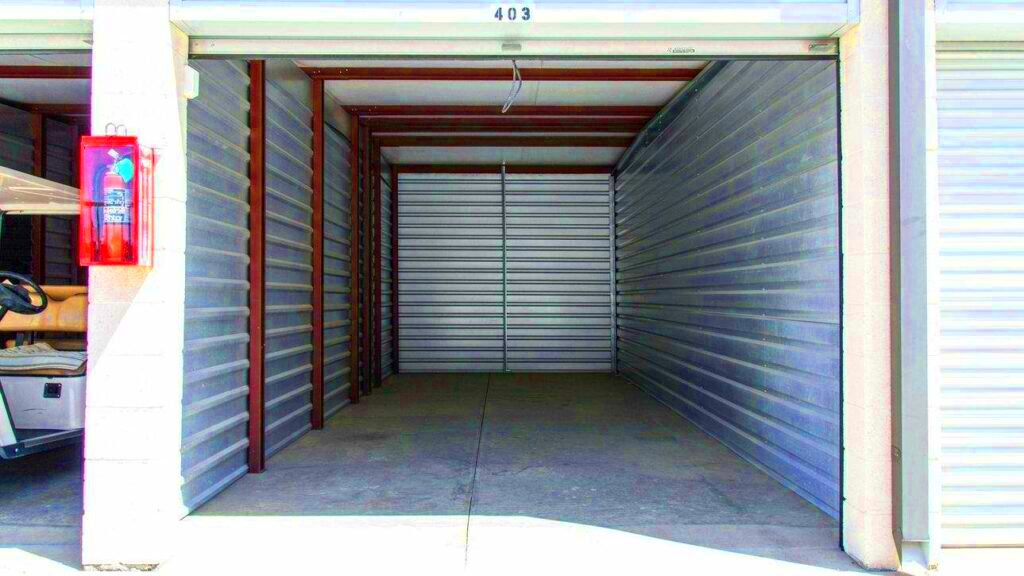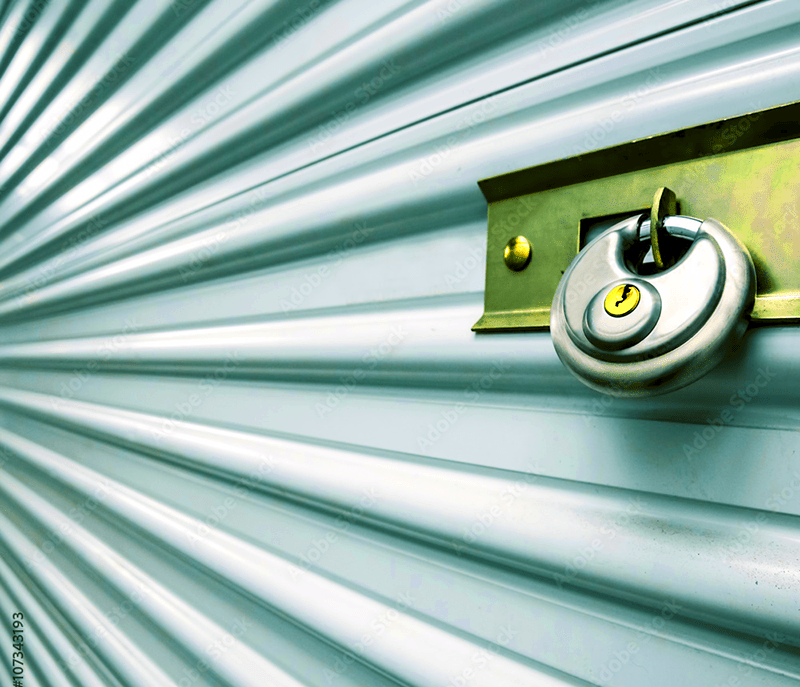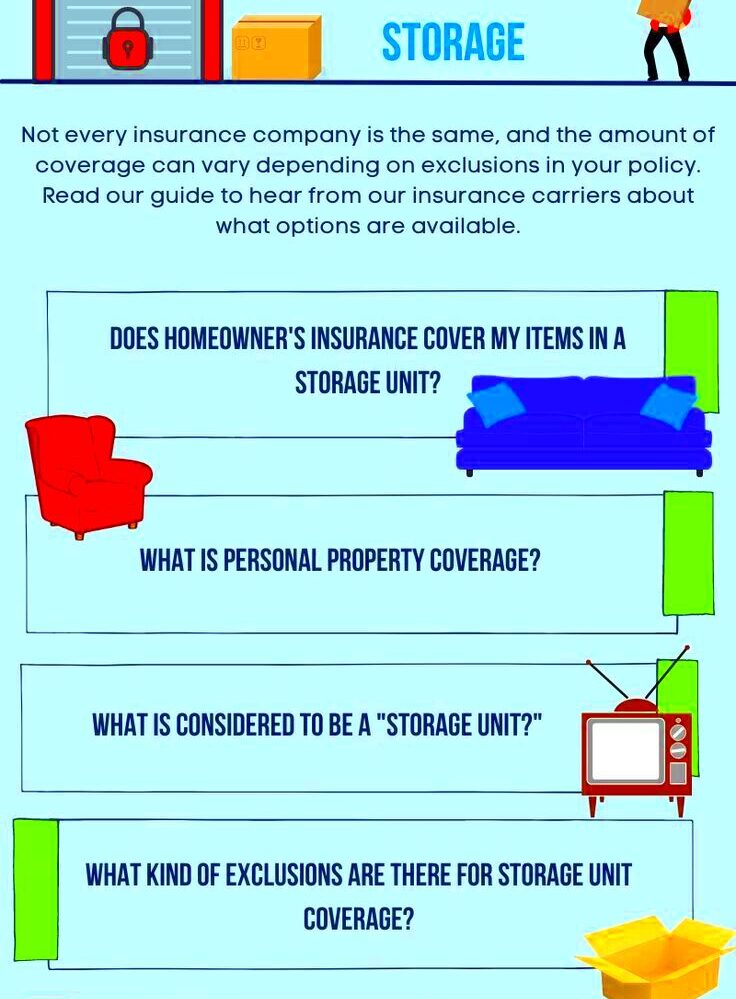California Tenant Protections for Self-Storage Units
The protection of tenants is highly regarded in California, even extending to storage units. If you think that renting a self-storage space only means having a place to keep your property, you are wrong. On the other hand, there exist rights that guarantee the safety of the items as well fairness in how tenants are treated. Understanding these safeguards can save one much anxiety and other problems in future. This article will focus on tenant protections with regard to self-storage facilities specifically.
Key Laws Governing Self-Storage Units

There are several important laws that affect self-storage units in California. Here are some notable ones to keep in mind:
- Self-Service Storage Facility Act: This law outlines the rights and responsibilities of both tenants and storage facility owners. It includes details on contracts, payment, and lien procedures.
- California Civil Code Section 21700: This code specifies how facilities can handle delinquent payments and what processes must be followed before taking further action.
- California Consumer Privacy Act (CCPA): If your storage facility collects personal information, they must comply with this law, ensuring your data is handled securely.
When it comes to utilizing self-storage units in California, comprehending these existing regulations can enable individuals to become more assured about their own entitlements or responsibilities.
Rights of Tenants Using Self-Storage

You, as a tenant renting a self-storage unit, are entitled to several significant rights intended to safeguard you in such cases:
- Right to a Written Contract: You should always receive a written contract detailing the terms of your rental. This includes the rent amount, payment due dates, and any fees that might apply.
- Right to Notice: If the facility plans to raise your rent or change terms, they must provide you with written notice. Typically, this notice must be given at least 30 days in advance.
- Right to Access: You have the right to access your storage unit during normal business hours, ensuring you can retrieve your belongings when needed.
- Right to Security: Facilities are responsible for ensuring that their premises are secure. This includes having proper locks, lighting, and surveillance systems to protect your stored items.
- Right to Notification Before Lien Procedures: If you fail to pay your rent, the facility must notify you before taking action to sell your items to cover the debt.
For any California tenant utilizing self-storage units, it is important to be knowledgeable about these rights. This empowers you to demand for your own rights and also guarantees that your assets are handled with dignity.
Responsibilities of Self-Storage Facility Owners
The owners of self-storage facilities possess various responsibilities aimed at providing their renters with safe and fair conditions. As a tenant, being aware of these obligations helps safeguard your interests. Each responsibility ranging from the maintenance of premises to the management of payments serves as guidelines for a good experience in renting. We will now look at some of these important responsibilities:
- Maintain Clean and Safe Facilities: Facility owners must ensure that the premises are clean, well-lit, and safe for tenants. This includes regular maintenance of storage units and common areas.
- Provide Clear Rental Agreements: Owners are required to provide a written contract that outlines all terms and conditions, including rental fees, payment deadlines, and procedures for accessing units.
- Implement Security Measures: It is the owner’s duty to install adequate security measures, such as surveillance cameras, secure fencing, and appropriate lighting, to protect tenants’ belongings.
- Give Notice for Rent Increases: If a facility owner intends to increase rent, they must provide written notice at least 30 days in advance, allowing tenants to make informed decisions.
- Handle Payments Responsively: Facility owners should manage payment collections promptly and ensure they provide receipts and notices regarding late fees or delinquencies.
- Follow Lien Laws: If a tenant fails to pay rent, owners must adhere to legal procedures before taking action, such as notifying the tenant about the impending sale of their belongings.
These duties and responsibilities are very important to both the tenants and facility owners. A good relationship is established, leading to a situation where mutual respect is observed by both parties and trust exists at all times.
Security Measures for Self-Storage Units
Security plays a significant role in facilitating private storage units. Certainly, you need to be sure that your items are safe. Thus, the owners of the facilities must take certain steps in order to secure them. There are several security measures that every individual seeking for personal storage should consider.
- Surveillance Cameras: Many facilities use 24/7 video surveillance to monitor the premises. This deters potential theft and allows for monitoring of any suspicious activity.
- Access Control: Facilities often use electronic gates or keycode access systems to ensure that only authorized individuals can enter the storage area. Make sure to inquire about access protocols.
- Individual Unit Locks: A good facility will provide strong, secure locks for each unit. You might also consider using your own high-quality lock for added security.
- Lighting: Well-lit areas reduce the risk of theft and accidents. Check if the facility is adequately lit at night, especially around access points and hallways.
- Insurance Options: While it’s not a physical security measure, many facilities offer insurance options for stored items. This can provide peace of mind in case of unforeseen incidents.
When looking for a self-storage unit always inquire about the security measures that exist. It gives you peace of mind and it allows you to focus on other things since your things will be safe when they are in storage.
Dispute Resolution for Tenants and Facility Owners
Disputes of any type can emerge during leasing period, including self-storage. Conflicts might be caused by late charges, access problems or property damage; therefore, it is important to know how to deal with them. In California, there are guidelines and best practices for addressing tenant-self storage facility owner disputes. This article will look at effective means of resolving such disputes.
- Communication is Key: The first step in resolving any dispute is open communication. Try discussing your concerns directly with the facility owner or manager. Often, issues can be resolved amicably through a conversation.
- Document Everything: Keep detailed records of your rental agreement, payment history, and any correspondence with the facility. This documentation can serve as evidence if disputes escalate.
- Mediation Services: If direct communication fails, consider mediation. This involves a neutral third party helping both sides reach an agreement without going to court.
- Legal Action as a Last Resort: If all else fails, you may need to consider legal action. Consult with a lawyer who specializes in tenant law to understand your rights and options.
- Know Your Rights: Familiarize yourself with California’s laws regarding self-storage disputes. Knowing your legal rights will empower you to advocate for yourself effectively.
A good comprehension of how to resolve disputes in kind accommodation management leads to satisfactory process operations that keen toward more tenable leases for both tenants and landlords alike.
Impact of COVID-19 on Self-Storage Policies
The COVID-19 pandemic brought significant changes to many aspects of life, including the self-storage industry. As people faced job losses and shifting lifestyles, self-storage facilities had to adapt to new realities. Understanding these changes can help tenants navigate their storage needs more effectively during and after the pandemic. Let’s explore some of the key impacts COVID-19 has had on self-storage policies.
- Increased Demand for Storage: Many individuals and families turned to self-storage as they downsized, relocated, or needed extra space for home offices or homeschooling. This surge in demand led facilities to expand their services and availability.
- Flexible Payment Options: To assist tenants facing financial difficulties, many storage facilities introduced flexible payment plans, allowing tenants to defer payments or set up manageable payment schedules.
- Health and Safety Protocols: Facilities implemented strict health protocols, such as enhanced cleaning practices, contactless access, and social distancing measures, to ensure the safety of both tenants and staff.
- Virtual Tours and Online Services: With in-person visits limited, many facilities began offering virtual tours and online rental processes, making it easier for potential tenants to find and rent storage units.
- Temporary Eviction Moratoriums: Some jurisdictions enacted temporary moratoriums on evictions, preventing storage facilities from auctioning off tenants’ items during the crisis, providing additional security for renters.
In response to the ongoing post-covid adjustments, these modifications in self-storage regulations showcase a more adaptable and tenant-centered mindset which enables people to handle their storage requirements properly.
Resources for Tenants in California
The fact that you are a tenant in the state of California determines the kind of help and information you need in order that your experience with self-storage is good. The place one can go for help or information is crucial as it enhances the ability of a tenant to make the right choices on self-storage. Here are some helpful sites for tenants in California:
- California Department of Consumer Affairs: This department provides valuable information on tenant rights, self-storage regulations, and how to file complaints.
- Local Legal Aid Organizations: Many nonprofit organizations offer free or low-cost legal assistance to tenants facing disputes or issues with storage facilities. Examples include the Legal Aid Foundation of Los Angeles and the Bay Area Legal Aid.
- Self-Storage Association: This national organization offers resources and information specifically for the self-storage industry, including tips for tenants and best practices for facility owners.
- Consumer Reports: This trusted source provides articles and guides on selecting self-storage facilities, as well as reviews to help you make informed decisions.
- Community Groups and Online Forums: Local community groups and online forums can provide peer support, share experiences, and offer advice about dealing with self-storage issues.
In California, tenants can use these resources to empower themselves into making informed choices and defending their rights within the self-storage arena.
FAQ About California Tenant Protections for Self-Storage Units
So tenants usually ask a lot of questions when it comes to their rights and self-storage protection. The following are frequent inquiries that come forward (FAQs) about the protection of self-storage unit tenants in California. They help in addressing common issues and give directions.
- What are my rights as a tenant renting a self-storage unit?
You have the right to a written contract, notice before rent increases, and secure access to your belongings. Additionally, facilities must provide adequate security measures to protect your items. - Can the facility sell my belongings if I miss a payment?
Yes, but the facility must follow specific legal procedures. They must notify you before selling your items and give you time to pay the outstanding rent. - What should I do if I have a dispute with the facility?
Start by communicating directly with the facility management. If that doesn’t work, consider mediation or consult legal aid services for assistance. - Are there any protections against eviction from my storage unit during COVID-19?
Some jurisdictions have implemented temporary eviction moratoriums, protecting tenants from having their belongings auctioned off during the pandemic. - How can I ensure my belongings are secure in storage?
Choose a facility with robust security measures, such as surveillance cameras, secure locks, and good lighting. Also, consider purchasing insurance for added protection.
For tenants who want to comprehend their rights and safeguards in California’s self-storage setting, these FAQs are a dependable kick-off.
Conclusion on Tenant Protections in Self-Storage
To conclude, California tenant safeguards in self-storage sector are very essential in ensuring safety and security to those storing their properties. Knowing your rights as a lessee and the duties of the facilities’ owners which could greatly improve occupancy experiences. Self-Service Storage Facility Act and the California Civil Code for instance empowers tenants to defend themselves from unjust dealings.
Moreover, the impact of recent events, like the COVID-19 pandemic, has further emphasized the need for flexible and responsive policies that cater to the changing needs of renters. Resources are readily available to help tenants navigate issues related to self-storage, from legal aid organizations to consumer advocacy groups. By being informed and proactive, you can ensure that your storage experience is positive, secure, and compliant with California laws. Remember, you have rights, and knowing them is the first step toward protecting your belongings and making the most of your self-storage experience.


